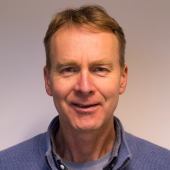
Global best practices
Global best practices
Haik van Exel, Managing Director, Hortimare, The Netherlands

Global best practices
Haik van Exel, Managing Director, Hortimare, The Netherlands
About the speaker:
Haik started at Hortimare in 2018, after a career of running different small companies. He started his career as a veterinarian for all animals big and small. In 2018 he was told that the seaweed industry was ready to scale, but in 2025 an essential piece of the puzzle is still missing. He now moved from managing Hortimare’s operations towards market development, building value chains for different species. He expects that the seaweed industry needs another 5-7 years to fully mature.
Company info:
Hortimare supports seaweed initiatives worldwide, providing expertise from conceptualisation to building and scaling. They specialize in seed supply, new species domestication, breeding programs, technical support, and ecosystem services—laying the foundation for our clients' and collaborators' success. Their mission is to build a thriving seaweed industry that benefits both the environment and society. They strive for a healthy, transparent supply chain where knowledge, skills, and rewards are shared, fostering collective success.
Presentation:
In the last 6 years, Hortimare has focused on operational control, making progress on technical challenges, production efficiency, lifecycle control and seeding technique. While seaweed production capacity in Europe has continuously increased in those years, market development and demand have not. In 2024, the European seaweed hype cycle reached a low point with little sales and cultivation for traditionally farmed kelp species. In 2025, they focus on market development and building sustainable value chains for different species, based on professional and focused collaborations. Haik van Exel will highlight examples of this by introducing the Dutch initiative “Seaweed Valley”, specific trends in assignments from the industry and sharing commercial strategies forward on five different continents including Europe.
Interview
1. You mentioned that in 2018, the seaweed industry seemed ready to scale. What key piece do you think is still missing in 2025
Market and real collaboration. Farmers are still looking for markets individually and not building the value chain together by bundling knowledge, experiences and expertise.
2. Could you tell us more about the "Seaweed Valley" initiative and its role in strengthening market development?
Seaweed Valley is a non-profit foundation with the aim to build the value chain for different seaweed species. At our facility, we have the high-quality starting material for different species, we work together with Seaweedland to cultivate the different species on land towards pilot scale and work with different partners on the downstream process to provide potential end buyers with the biomass they need to start testing. We strive to get more clarity on interesting end markets for the future, get technology in place that is missing in a certain value chain and create more transparency on prices, quality requirements and volumes.
3. What lessons have you learned from building value chains across continents, and how do you see these shaping the industry's next 5–7 years?
For cultivated seaweed, the value chains are only in place in Asia. The rest of the world needs to build a value chain that serves the needs of the market at the right price. The only way to do this successfully is by working together in the smartest way possible and put the building blocks in place that secure the reliability of the value chain. The expertise, experience, skills and even the funding is in place, but often cannot be utilized effectively in the current way of working. In my presentation, I will give clear examples of best practices and suggestions to overcome the current challenges.